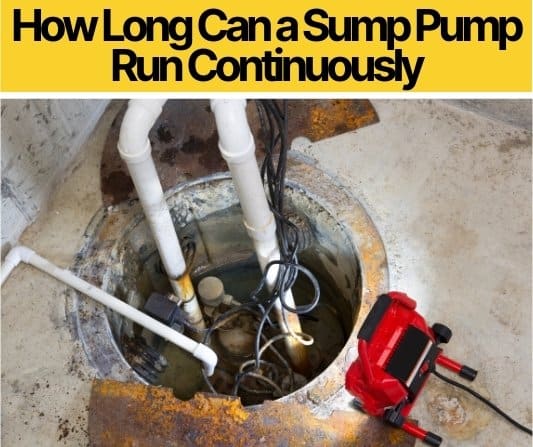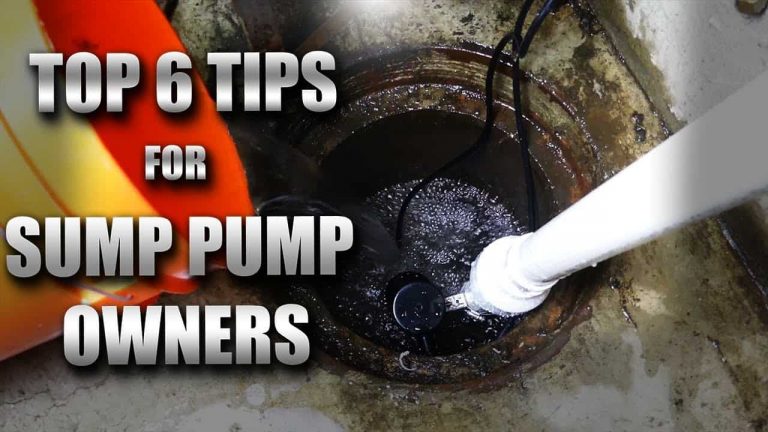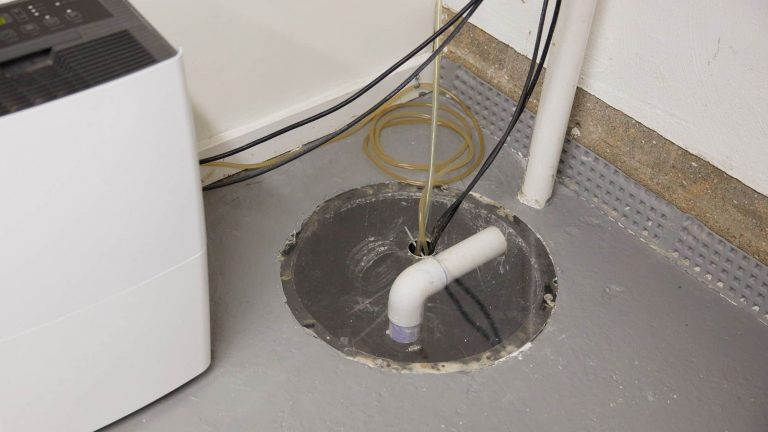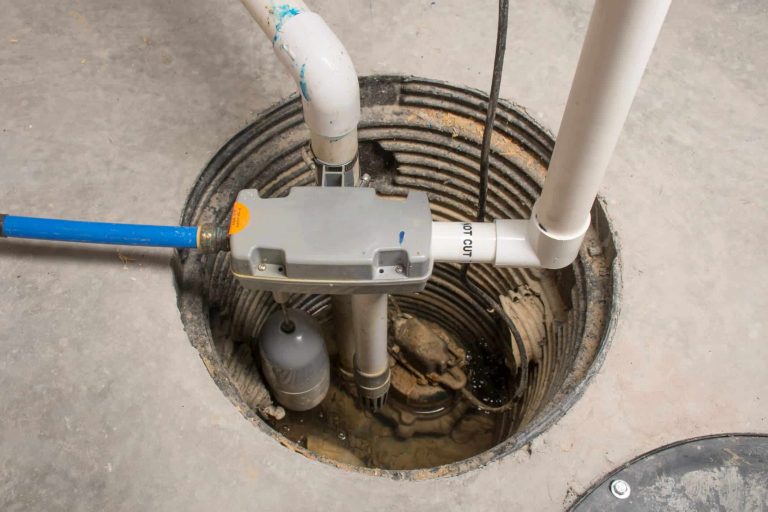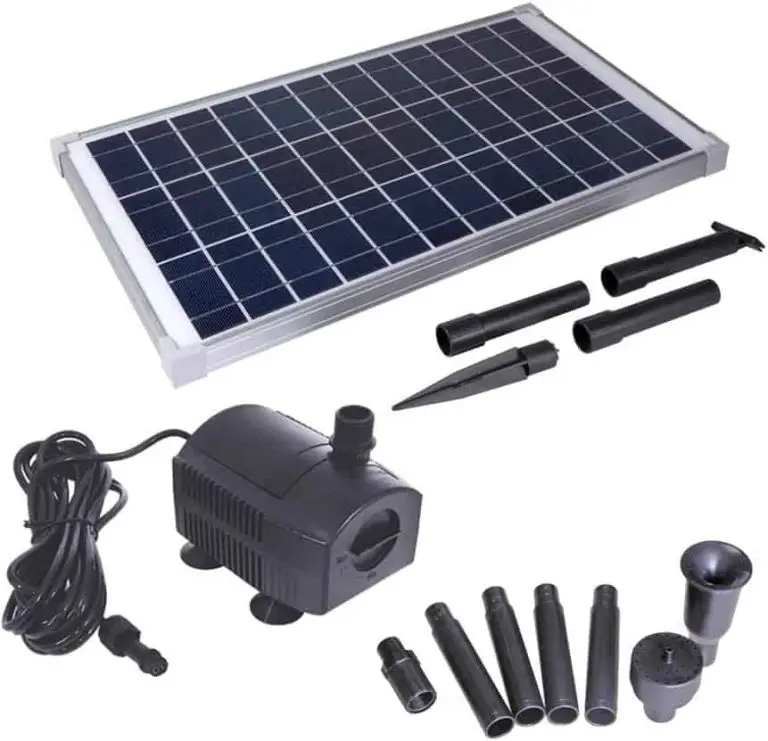Can a Sump Pump Burn Out
A sump pump is a necessary appliance in many homes, particularly those that are built on a foundation. The sump pump’s job is to remove water that has accumulated in the sump pit and to keep the basement dry.
But what happens when a sump pump burns out? Can it be replaced or repaired, or does the entire system need to be replaced? A sump pump is a key component in any home with a basement. Its job is to remove water that has seeped into the basement and prevent flooding.
However, if the sump pump is not properly maintained, it can burn out. There are a few things that can cause a sump pump to burn out.
One is if the pump is constantly running. This can happen if there is a lot of groundwater around your home or if you have heavy rains.
If the pump doesn’t have time to rest, it will eventually overheat and burn out. Another thing that can cause a sump pump to burn out is if it gets clogged with debris.
This can happen if you don’t clean the grate that covers the opening to the pit where the pump sits. The debris can block the flow of water and cause the pump to overheat.
If you think your sump pump might be burning out, it’s important to call a plumber right away. They will be able to diagnose the problem and make sure that your basement stays dry.
What Happens when the Sump Pump Fails
How Long Will a Sump Pump Run before Burning Out
If your sump pump is running constantly, it will eventually burn out. How long this takes depends on the quality of your pump and how well it is maintained.
A good rule of thumb is that a sump pump should last for about 10 years with proper maintenance. However, if your pump is not well-maintained or if it is overworked, it could burn out in as little as 2-3 years.
To avoid burning out your sump pump, make sure to follow these tips: 1) Check the level of water in your sump pit regularly. If the water level gets too low, your pump will have to work harder to keep up, which will shorten its lifespan.
2) Keep an eye on the discharge pipe. If this becomes blocked, your pump will have to work harder to move the water out of the pit, again leading to premature wear and tear.
3) Have your pump serviced regularly by a professional. This will ensure that any potential problems are caught early and corrected before they cause major damage.
How to Fix Short Cycling Sump Pump
If your sump pump is short cycling, it means that it is turning on and off more frequently than it should. This can be caused by a number of factors, including a clogged intake screen, an incorrect float switch setting, or a problem with the pump itself.
Luckily, there are some simple things you can do to fix a short cycling sump pump. First, check the intake screen to make sure it isn’t clogged with debris.
If it is, clean it off and see if that fixes the problem. If the intake screen is clear, then the next step is to check the float switch.
The float switch tells the pump when to turn on and off based on the water level in the sump pit. If the float switch is set too high or too low, it can cause the pump to turn on and off more frequently than necessary.
Adjusting the float switch should fix this problem. Finally, if neither of these solutions works, then there may be something wrong with the pump itself and you’ll need to call a plumber for help.
Why is My Sump Pump Pit Dry
If your sump pump pit is dry, it’s likely because the pump isn’t getting enough water. This can be caused by a number of factors, including: -The pit is too small and/or shallow.
-There is insufficient drainage around the home leading to the pit. -The pump isn’t powerful enough to move the water.
-Something is blocking the inlet screen or discharge pipe. If you’re not sure why your sump pump pit is dry, it’s best to consult with a professional. They will be able to diagnose the problem and recommend a solution.
Can a Sump Pump Run 24/7
If your home is prone to flooding or you live in an area with a high water table, you may be wondering if it’s okay for your sump pump to run 24/7. The answer is yes, in most cases it is perfectly fine for your sump pump to run continuously.
There are some instances where you may want to turn off your sump pump or at least reduce the amount of time it runs each day. If your basement is constantly dry and you only experience the occasional flood, you may not need to run your sump pump around the clock.
You can save energy and wear and tear on your pump by only running it when necessary. If you’re not sure whether or not your sump pump needs to be running all the time, check with a local plumber or waterproofing expert. They can help you determine if continuous operation is right for your situation.
Can Utility Pumps Run Continuously
Utility pumps are designed to move water from one place to another, and they can be used for a variety of applications. But can utility pumps run continuously? The answer is yes, utility pumps can run continuously.
However, there are a few things to keep in mind if you’re planning on running your pump continuously. First, make sure that the pump is rated for continuous operation.
Second, you’ll need to have a reliable source of water to feed the pump – otherwise it will quickly overheat and burn out. And finally, be prepared for some maintenance issues – running a pump continuously will likely shorten its lifespan somewhat.
With those caveats in mind, there’s no reason why you can’t run a utility pump continuously if you need to. Just make sure you understand the risks involved and take steps to minimize them.
Sump Pump Failure What to Do
If you have a sump pump in your home, it’s important to know what to do if it fails. A sump pump failure can cause major flooding, so it’s important to act quickly.
If you notice that your sump pump has failed, the first thing you should do is turn off the power to the pump. This will help prevent further damage.
Next, you’ll want to remove any standing water from around the pump. Once the area is dry, you can inspect the pump for damage.
If the pump appears to be damaged, it will need to be replaced. You can either call a professional or purchase a new pump and install it yourself.
If you choose to replace the pump yourself, be sure to follow all instructions carefully. Once your new sump pump is installed, be sure to test it regularly to ensure that it’s working properly. A sump pump failure can be a nightmare, but by taking some simple precautions, you can help avoid this problem altogether.
How Long Can a Submersible Pump Run Continuously
A submersible pump can run continuously for a variety of reasons. The most common reason is to empty out a pool or hot tub that is not in use.
Other reasons include draining water from a flooded basement or removing water from a pond or fountain. How long the pump will run depends on the size of the unit and how much water it needs to move.
Most submersible pumps have an automatic shut-off feature that kicks in when the water level gets too low. This prevents the pump from running dry and damaging itself.
However, if you need to keep the pump running for an extended period of time, it’s important to check on it regularly to make sure it doesn’t overheat or burn out. If you’re looking for a reliable submersible pump that can run continuously without issue, we recommend checking out our selection here at Pump Solutions Australasia. We offer a wide range of high-quality products that are designed to last, so you can rest assured knowing your purchase is backed by our quality guarantee.
Sump Pump Running Constantly After Heavy Rain
If your sump pump is running constantly after a heavy rain, it’s likely because the ground around your home is saturated and water is seeping into your basement. While this isn’t necessarily cause for alarm, it’s important to monitor the situation and take steps to ensure that your sump pump can handle the increased water flow.
Here are a few things you can do to ease the strain on your sump pump: – Check the gutters and downspouts around your home to make sure they’re clear of debris. Clogged gutters can cause water to back up and enter your basement through foundation cracks or other openings.
– Inspect the perimeter of your home for any cracks or gaps that could allow water in. Seal any cracks with hydraulic cement or caulk, and fill any gaps with expanding foam insulation.
– Extend downspouts away from your foundation to help keep water from pooling near your home. You may also want to consider installing a French drain system to further redirect water away from your foundation. By taking these precautions, you can help reduce the amount of water seeping into your basement and minimize the strain on your sump pump.

Credit: www.everdrytoledo.com
How Do You Tell If Your Sump Pump is Burnt Out?
If your home is prone to flooding or you live in an area with a high water table, then you likely have a sump pump. This handy device helps to keep your basement or crawl space dry by pumping out any water that seeps in.
But what happens when your sump pump burns out? How can you tell if this has happened and what should you do about it? There are a few telltale signs that your sump pump is on its last legs. If you notice any of the following, it’s time to start shopping for a replacement: – The pump is making strange noises or vibrating excessively.
– It’s taking longer than usual for the pump to kick on after sensing water. – Water is starting to back up into the pit even when there hasn’t been any recent rainfall.
– The float switch isn’t working properly, causing the pump to run constantly or not at all. If you suspect your sump pump has burned out, the best course of action is to replace it as soon as possible. Waiting too long could result in major flooding and serious damage to your home.
How Long Can a Sump Pump Run Continuously before Burning Out?
A sump pump can run continuously for a long time without burning out. However, if the pump is not properly maintained, it will eventually burn out.
To prevent this from happening, make sure to regularly check the pump for any signs of wear and tear. Also, be sure to keep the area around the pump clean and free of debris so that the pump can operate smoothly.
Can Sump Pumps Overheat?
Sump pumps are designed to remove water from an area, typically a basement, by pumping it out through a hose or pipe. While sump pumps are generally very reliable, they can overheat if they run for too long without breaks.
When a sump pump overheats, it can cause the electrical components to fail, which can lead to a fire. There are several things that can cause a sump pump to overheat: 1.
If the power supply to the sump pump is not adequate, the pump will have to work harder and will eventually overheat. Make sure the circuit breaker is properly sized for the pump and that the wiring is in good condition.
2. If the discharge pipe becomes blocked or restricted in any way, this can cause back pressure on the pump and make it overheat.
Inspect the discharge pipe regularly to make sure it is clear and unobstructed. 3.
If there is too much water being pumped, this can also cause overheating as well as premature wear on the pump itself. Check the intake screen for debris and clean it out as needed; you may also need to increase the size of your discharge pipe if you find that you’re constantly having to clear it out due to clogs.
Can a Sump Pump Overheat And Cause a Fire?
Yes, a sump pump can overheat and cause a fire. If the pump is not properly ventilated, the heat can build up and cause the motor to fail. This can create a fire hazard.
Conclusion
Sump pumps are one of the most important pieces of equipment in a home, responsible for keeping basements and crawlspaces dry by pumping water out of them. But like any other piece of machinery, sump pumps can burn out, usually as a result of overuse or age.
When a sump pump burns out, it will need to be replaced. The good news is that sump pumps are relatively inexpensive, so replacing one shouldn’t break the bank.
The bad news is that if your sump pump does burn out and you don’t have a backup plan in place, you could end up with a wet basement or crawlspace – and that can lead to all sorts of problems. So what can you do to prevent your sump pump from burning out? First, make sure that you only use it when necessary – during heavy rains or when snow is melting.
Second, have a backup plan in place in case your sump pump does fail. And third, regularly check on your sump pump to make sure it’s in good working condition and clean any debris that may have gotten into it. By following these simple tips, you can help ensure that your sump pump will continue to keep your basement or crawlspace dry for years to come.

